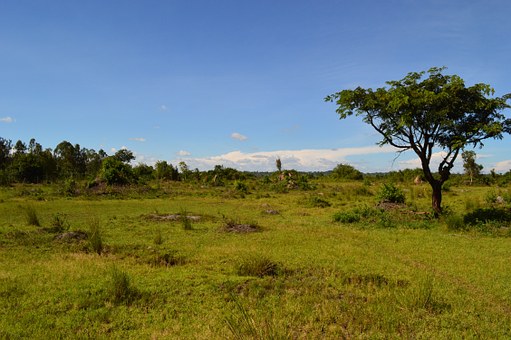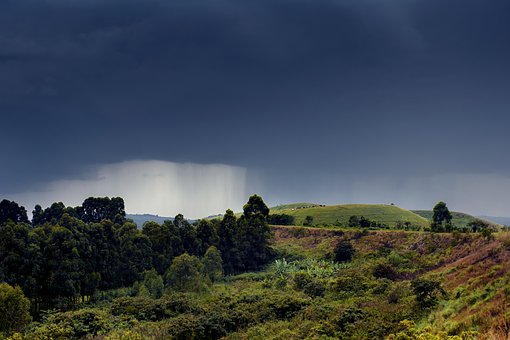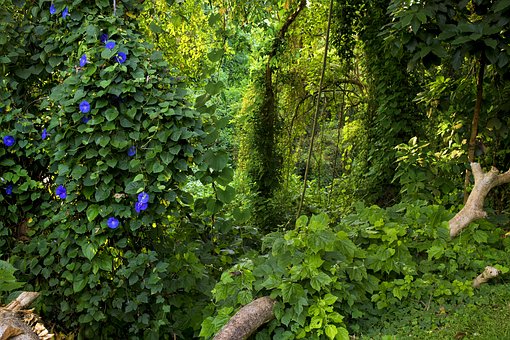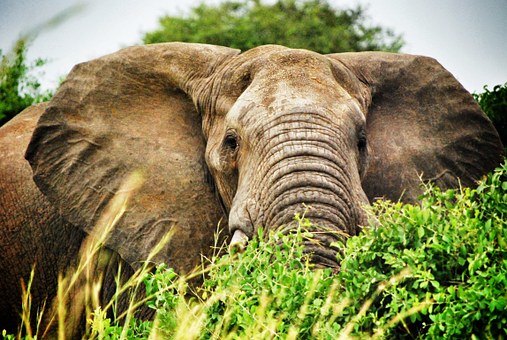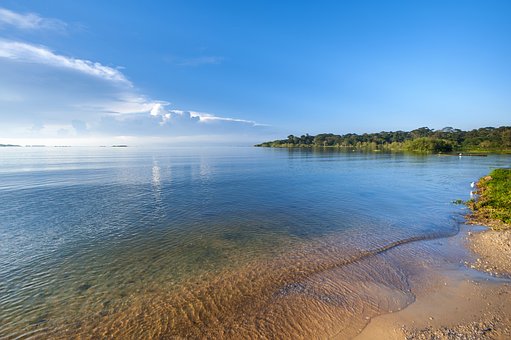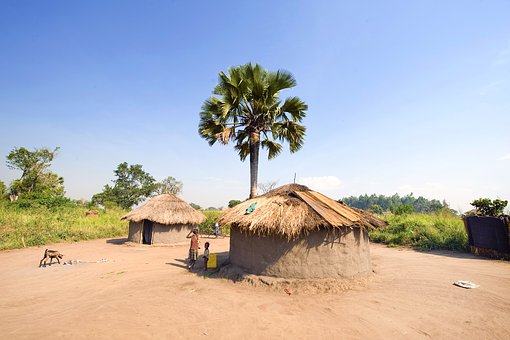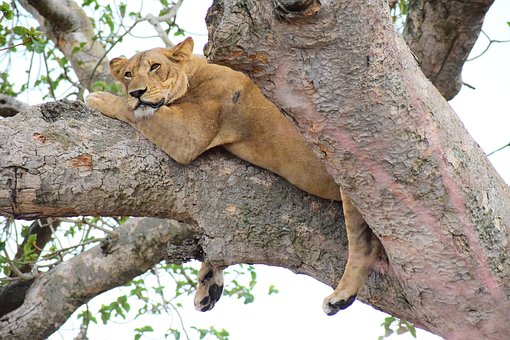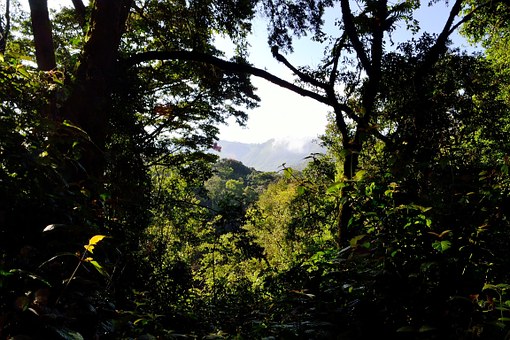Backpacking in Uganda
English Prime Minister Winston Churchill once called Uganda the “Pearl of Africa” because of its unique combination of diverse landscapes. Traveling through Uganda you will encounter a breathtaking landscape of volcanoes, secondary forests and tea plantations as far as the eye can see. There are several national parks where you will encounter a growing variety of wildlife and the last mountain gorillas as you roam. As a backpacker you will be welcomed very friendly and curious.
The country offers you a grandiose landscape with high mountain massifs and the legendary moon mountains, which cannot be surpassed with lasting impressions in their uniqueness. The Ruwenzori Mountains present you on your backpacker trip with the opportunity to dive into lush rainforests, giant ferns, huge lobelias and Venezia, high moors, mountain lakes with emerald green water and breathtaking glaciers on top of the 5189m high Margherita to discover.
The infrastructure is relatively good by African standards, so you can travel from A to B on well-developed roads, especially in the capital area and on connections to Kenya and Tanzania. In the north and west, the quality of the roads is declining significantly, so you can get shaken up during backpacking. Mobile and Internet connections are available everywhere, but they don’t meet European standards.
In addition to a magnificent landscape you will find protected areas and wonderful relics, which belong to the UNESCO World Heritage. Three of them are UNESCO World Heritage Sites. In combination with cultural and social structures, this results in the breathtaking reflection of a unique culture. Uganda has an area of 241,040 square kilometres and is home to around 35 million people, 1.5 million of whom live in the capital, Kampala.
When travelling in Uganda, you generally don’t have to worry because the country is considered a safe travel destination. If you are drawn to the border near Southern Sudan or the Democratic Republic of Congo, armed robberies can occur. However, the national parks close to the border are not affected. In Uganda, travelling by land and in the air is quite possible.
When backpacking through Uganda you will find warm temperatures between 25° and 30° C all year round due to the proximity to the equator, which cool down to a pleasant 12° to 18° C at night. You can get money in the cities at the ATM machines. However, you should always have enough cash with you, as credit cards are not accepted everywhere.
When withdrawing money at the cash machines you should look out for machines that provide the Mastero sign and credit cards as a payout option. Otherwise you will not get any money. You don’t have to learn Swahili because you can communicate very well with English in Uganda. Exciting and unique is the African cuisine, which you should definitely get involved with. Everywhere there are food stands and other catering facilities.
Culture in Uganda
There are about 40 different ethnic groups in Uganda, divided into two large groups. On one side are the Bantu-speaking peoples and on the other the Nilosaharan peoples. One sixth of all inhabitants is Bangada, which belongs to the Batu peoples. You will also find Ankole, Basoga as well as Langi and Acholi, who also play an important role in the country. Despite their own languages, which are spoken in their local area, English and Swahili are the official languages.
Most Ugandans are Catholic or Anglican Christians. However, there is also Sunni Islam and traditional religions that adhere to their rites. The Ugandan population is very proud. As a traveller, however, you will encounter a special friendliness, which will be shown to you. You will quickly find a connection to immerse yourself in the unique world of Uganda.
More Backpacking information about Uganda
Compared to other backpacker countries, travelling in Uganda is quite cheap. With a daily budget of 25 to 35 Euro you are usually quite well served. However, if you want to visit many sights and national parks, you have to plan a little more money for the entrance fees.
In Uganda, fabulous natural spectacles and unique encounters are part of the daily program. As you roam through the rainforests, you will encounter a variety of animals and watch the last mountain gorillas. A trekking tour in and the ascent of the mountain peaks rewards you with a unique view over the indescribable landscape.
There are many ways for you to find a hostel. Depending on your taste, you can stay in beautiful hotels or choose a budget hostel. You’ll even get a real bargain where you pay 10 Euros per night for a single double room. On average the prices in a hostel and other hostels are around 15 – 17 Euros.
You can get many delicious and interesting delicacies of African cuisine for less than 5 Euro. Even if you don’t know something, you should try everything, because real delicacies will delight your palate. During your backpacker trip, get involved with the culture and experience the unique differences first hand. An exciting place to go shopping are the many markets, where you can buy fruit, great souvenirs such as African jewellery, colorful fabrics and hand-carved sculptures at an unbeatable price.
As a German citizen you need a visa for your entry to Uganda. You can apply for this visa at the embassy of Uganda. In addition you have the possibility to use a “Visa on Arrival”, which will be issued to you at the airport of entry. What else you need to know as a backpacker can be found under Visa & Vaccinations.
Backpacker Budget in Uganda
For traveling and living in Uganda, you are well on your way with a budget of 25 to 35 euros for basic expenses. However, if you want to keep costs as low as possible, you can save a few euros by camping and eating from the street corner. If you want to take many sights and attractions with you on your backpacker trip, you’ll need an extra budget. For the gorilla tracking and other experiences you pay well and gladly around 250 euros and more. The local currency is the Uganda Shilling, or UGX for short.
For a simple, hearty meal, the prices range from around 2 euros to 7 euros in a simple restaurant. In upscale restaurants, you are there for a complete meal with around 10 euros. A local beer you get in 0.5 l bottles for 1.50 to 2 euros, import beer in 0.33 l bottles costs approximately 1.50 euros. There is water for approximately 0.50 euro in 0.33 l bottles. You will search in vain for well-known fast food chains like Mc Donalds in Uganda.
The prices for the transport depend strongly on the chosen means of transport. Therefore you should take a closer look at the different alternatives and consider which route is most convenient for you.
Taxi driving Bus driving in Uganda
Travelling in local buses, Bodabodoas or minibus taxis is quite inexpensive. A single ticket costs 1 to 2 euros for a 15-minute trip in the city. For longer overland distances, costs of 10 to 13Euro are incurred. In addition to public transport, it is worth studying the offers of rental cars. Sometimes the car rental companies have a travel route in their repertoire that you can drive.
Bus travel in Uganda
Buses run in Uganda through the whole country and connect the cities with different bus networks. Especially for longer journeys, large coaches are preferable to shared taxis because they offer you more safety and comfort. Your choice should be post buses. You can get tickets for your trip at any post office. As a rule, the buses also depart from the post office in the desired direction. You pay only 1 to 2 Euro per 100 kilometres driven.
Domestic fares in Uganda
Flying in Uganda is one of the fastest ways to get from A to B. At Entebbe airport there are two terminals, one of which is reserved for domestic flights only. Arua Airport is the second largest airport in Uganda from where Eagle Air serves destinations such as Entebbe, Juba, Yei and Moyo. Departure times, prices and further information can be found on the website.
Train travel in Uganda
Travelling by train is not possible in Uganda, as the few rail connections are reserved exclusively for freight traffic.
Backpacker Route in Uganda
The country offers you a diverse landscape with primeval forests, fascinating lakes, breathtaking mountain massifs and a unique culture, which is strongly influenced by the different ethnic groups. As a backpacker, you can take a week-long circular trek in the Ruwenzori Mountains and climb the top of Margherita, 5189 metres above sea level.
Part of Lake Vitoria also belongs to Uganda. There are also different national parks and special historical treasures just waiting to be discovered by you. In any case, you can be sure that you will always come across a unique flora and fauna that will leave you speechless. What should you have seen on your backpacking trip?
Route 1: The classic (15-25 days)
- 2 days in Entebbe, explore the pulsating city life. Pure shopping is the order of the day
- 3 days to explore the Murchison Falls National Park and enjoy the scenic beauty.
- 3 days to discover Fort Portal and the Kabarole district with its indescribable scenery.
- 3 days in Kyambura Game Reserve to meet elephants and other herd animals.
- 2 days Queen Elizabeth national park the nature and game reserve explore.
- 2-3 days in the Bwindi Inpenetrable National Park to meet the last free living gorillas.
- 2 days to see the breathtaking scenery of the Volcanoes National Park.
- 2 days at Lake Kivu to explore the landscape and the lake shore.
- 2 days exploring Kigali, a modern city and a unique landscape.
- 2 days at Lake Mburo to meet herd animals and dive into the beautiful landscape.
- 2 days Kampala, discover the capital and enjoy the special flair.
Route 2: Backpacker Intensive Trip (up to 40 days and more)
- 3 days in Entebbe, explore the pulsating city life. Pure shopping is the order of the day
- 4 days to explore the Murchison Falls National Park and enjoy the scenic beauty.
- 3 days to discover Fort Portal and the Kabarole district with its indescribable landscape.
- 5 days through unique vegetation in the Ruwenzori Mountains.
- 2-3 days to the summit of Marherita
- 3 days in Kyambura Game Reserve to meet elephants and other herd animals.
- 3 days Queen Elizabeth National Park exploring the nature and wildlife reserve.
- 3 days in Bwindi Inpenetrable National Park to meet the last wild gorillas.
- 2 days to see the breathtaking scenery of the Volcanoes National Park.
- 3 days at Lake Kivu to explore the landscape and the lake shore.
- 3 days Kigali, explore a modern city and wander through a unique landscape.
- 2 days at Lake Mburo to meet herd animals and dive into the beautiful landscape.
- 4 days Kampala, discover the capital and enjoy the special flair.
Travel times in Uganda
The climate in Uganda is comparable to Kenya. However, there is much more rain in Uganda, which is caused by Lake Victoria and the humid southwesterly winds from it. It is much drier in the northwest and central Uganda. Normally you can expect two rainy seasons for your backpacker trip. If you are travelling in the north of the country, there is a tendency towards a long rainy season and a long dry period.
Nevertheless, the temperatures are always pleasant and there are many sunny days. Since the temperatures are always within bounds, there is never extreme humidity. When it rains, it rains briefly and violently. There are rarely longer periods of rain that last for several days. The optimal travel time for Uganda is December to February and July to September.
Backpacker accommodations in Uganda
The search for accommodation in Uganda is not always easy on your backpacker trip, especially if you prefer hostels. Such accommodations are only available in Kampala, Entebbe, Kabale and Fort Portal. On average you pay about 13 Euro for one night. A look at the hostel page Hostelworld and Hostelbookers will give you some information. Accordingly, the prices for an overnight stay in a hostel are as follows:
- Kampala 5 -15 Euro
- Entebbe 5 -15 Euro
- Kabale 7 Euro
- Fort Portal 9 Euro
The choice of backpacking in Uganda is not very varied. But you don’t have to worry about accommodation, because there are also interesting alternatives. So you can also stop by AirBnB for a guesthouse and rooms on the spot. A comparison is definitely worthwhile. Another alternative are hotels and motels, for example.
Hotels and motels on exit roads and motorways
There are hotels all over the country. Motels are mainly located on exit roads and motorways. In both variants a pleasant equipment waits for you, where you get beside an own bathroom also at the same time an Internet connection provided. They are more luxurious, which is of course reflected in the price. However, European standards are rarely comparable. For an overnight stay in hotels and motels you pay on average between 30 and 40 euros per night. There are however also variants, where it becomes fast sow expensive. But once you should also afford such an overnight option, because you will not regret a cent.
Camps in the nature reserves and reserves
Not cheap, but a true dream are the different camps you will find during your backpacking trip near the reservations in Uganda. In addition to the unique nature and the indescribable views, you will also experience the breathtaking feeling of freedom and adventure. As these camps are located away from towns and villages, you will also find a wonderful tranquillity that is only interrupted by the sounds of nature. You can really enjoy this kind of accommodation by visiting ugandaexclusivecamps.com or booking.com and choosing one of the exclusive camps.
Backpacker Trips & Tips in Uganda
You can simply travel the country or get involved with the varied nature and culture. But with everything you want to do in Uganda, good planning is essential. There are only limited permits for chimpanzees and mountain gorillas. In the same way, visitors to Golden Monkeys are limited per day during the high season. You can book the different tours directly at your accommodation or at the Uganda Wildlife Authority.
Rwanda Tourism Board also offers you the possibility to book. However, you are rather on your own with the website, since you have to click through countless links from different providers, because all providers are displayed to you. The search is still not easy, because you first have to see if and when tours or a city tour will be carried out. With the slow internet connection the search and planning on site becomes a test of patience.
Backpacker Highlights in Uganda
If you are an experienced trekker, a combination of the Ruwenzori ascent and a visit to the mountain gorillas is a unique highlight. The tour starts in Kasese at the foot of the legendary Moon Mountains with a boat safari in Queen Elizabeth National Park and takes you to the 5189 metre high Margharita. You will hike through lush rainforest, past waterfalls, giant ferns, through raised bogs, past mountain lakes and stepped rocky terrain.
Another highlight is a tour to the Bwindi National Park in the south of Uganda, where you will encounter mountain gorillas. With a bit of luck you can watch the gentle giants up close and witness a touching nature experience. Kampala is a real highlight if you want to go shopping. At the markets you can get countless spices, coffee and teas as well as great fabrics, unique carvings and other beautiful things that are perfect as souvenirs. Especially on the markets the prices are very reasonable. But don’t forget when trading that the people are very poor and feed their families from the income.
Another spectacular experience awaits you in the Murchison Falls National Park. The Nile, which shows itself in its most beautiful form here, crosses this. The Nile plunges 42 metres into the depth with a loud roar. The landscape on the banks sprays something magical and fascinates you immediately.
Ishasha is one of the few areas in Africa where lions do strange things. They climb trees, more precisely African “Fig Trees”. Because they have the perfect overview from the comfortably wide branches and can lounge and sleep until the heat of the day has subsided to go hunting. With a jeep you simply drive to the Fig Trees and look out for lions. It is very likely that you will meet the impressive predators including baby lions in the trees.
Backpacker Insider Tips in Uganda
A real insider tip is the north of Uganda, because it doesn’t always have to be gorillas. Here you can experience an unknown, wonderful side of Uganda. At the volcano Elgon you will come across the impressive Sipi waterfalls and large coffee plantations. In the land of the Karamojong you will be welcomed by a shepherd people. They belong to the most fascinating peoples in Uganda and resemble the Massais in their way of life and clothing.
The untouched landscape is very rarely visited by travellers, so you’ll find the original Uganda here and you’ll be able to fully immerse yourself in life in a different culture in the most untouched national park. Kidepo Valley National Park is home to a variety of wildlife. Even though this place has been chosen as the best safari destination, it is still considered the best kept secret not to be missed on your backpacking trip to Uganda.
Food & Drinks in Uganda
In Uganda, food varies from region to region and therefore provides a unique taste experience for you as a backpacker. In the south of the country Matooke (banana porridge) is a staple food, while in the north Millet and in the west potatoes are used as staple food. Cassava and Poscho (African corn) are on the menu throughout the country.
Food is always a communal event. The locals eat mainly at home. The street stalls and restaurants are reserved for tourists. People eat with their fingers. But if you prefer to eat with cutlery, this is no problem in a restaurant.
If you’re not ready to try Uganda’s cuisine right away, you’ll find fast food chains like Hungry Lion, Steers and Nando’s as well as Chinese restaurants in the big cities. You can get a wide selection of fresh East and vegetables at a street or city market at very reasonable prices.
Food in Uganda
In Uganda’s cuisine, rice is often prepared in different variations and Binyebwa, a peanut sauce, is prepared. The peanut sauce is available as a side dish to various dishes. There is also Luwombo, a delicious meat sauce. Those who like to eat fish will get their money’s worth in restaurants, as it is prepared very juicy. The small hunger can be satisfied comfortably with chapati (baked dough pancakes), sandwiches, omelettes, samosas (filled dumplings) or with grilled meat on a skewer. For true foodies, Uganda’s cuisine offers true taste experiences, which you should definitely get involved with.
Drinking in Uganda
A traditional soft drink in Uganda is made from corn, millet and cassava and results in a thick drink that takes a little getting used to for a European palate. But you should try it anyway. When fermented, it is used to produce the traditional local beer. Several breweries produce different types of beer that differ in taste and delight the European palate. So you can try everything from Bell Beer to Tusker from Kenya to the Nile Special.
Fruit juices and sodas are the perfect thirst quenchers. The national drink in Uganda is Waragi, a delicious banana gin. Of course you also have to try the coffee. Tea drinkers also get their money’s worth. Because both products are grown in the country and prepared in a delicious way.
Backpacker Visas and Vaccinations in Uganda
For your backpacker trip through Uganda you need a visa, which you can get at the embassy of Uganda in Berlin, at the consulate general in Frankfurt or at the airport of entry. Valid entry documents are also important. According to the Federal Foreign Office, the entry requirements are as follows:
- Passport: Yes
- Provisional passport: Yes
- Identity card: No
- Temporary identity card: No
- Passport for children: Yes, with photograph
Annotations
If you exceed the period of stay entered in your passport, you will be fined US$100. Therefore, you should check carefully what length of stay was entered into your passport when you entered it. If necessary, you should apply for an extension within the period to avoid unnecessary hassle.
Medical Advice & Vaccinations for Zanzibar
In addition to the standard vaccinations of the Robert Koch Institute, which should be up to date, you will need to have your backpacker trip vaccinated against yellow fever and provide proof of this on arrival. Remember that the active ingredient will be vaccinated 10 days before your trip starts. You should also refresh your vaccinations against malaria, hepatitis, polio, influenza, typhoid fever, rabies, etc. In large cities and tourist areas, medical care is guaranteed. However, it does not meet European standards. It may therefore be useful for you to take out a repatriation insurance policy.

